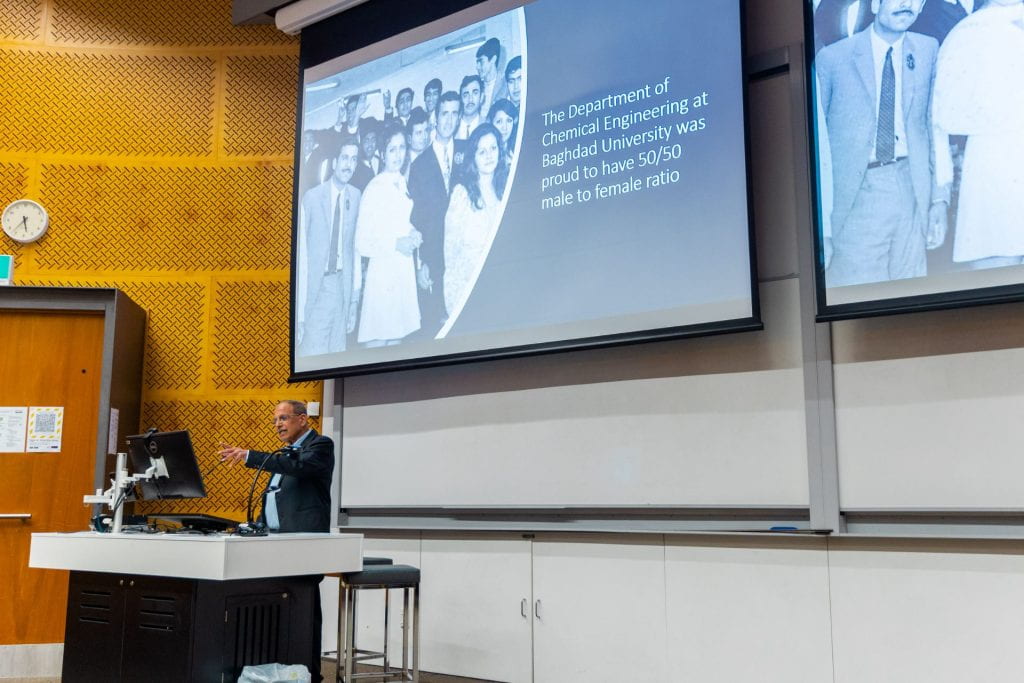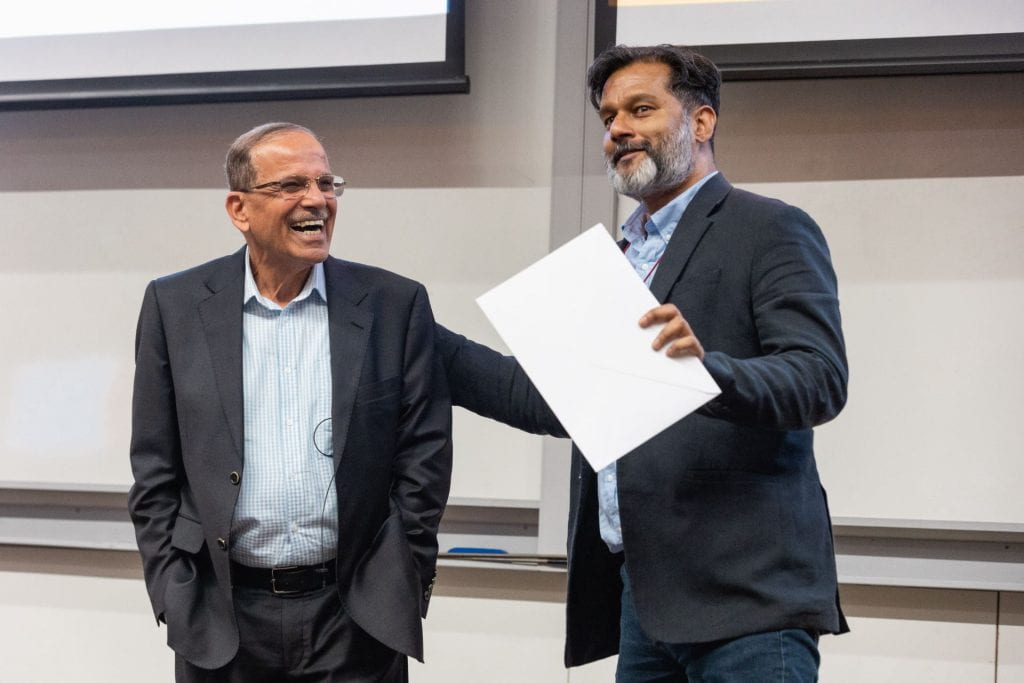Photo: CHEMMAT’s Professor Mohammed Farid at his Exaugural Lecture on Thursday, 17 November
Professor Mohammed Farid
Congratulations Mohammed on an amazing career and we wish you all the best for your retirement!
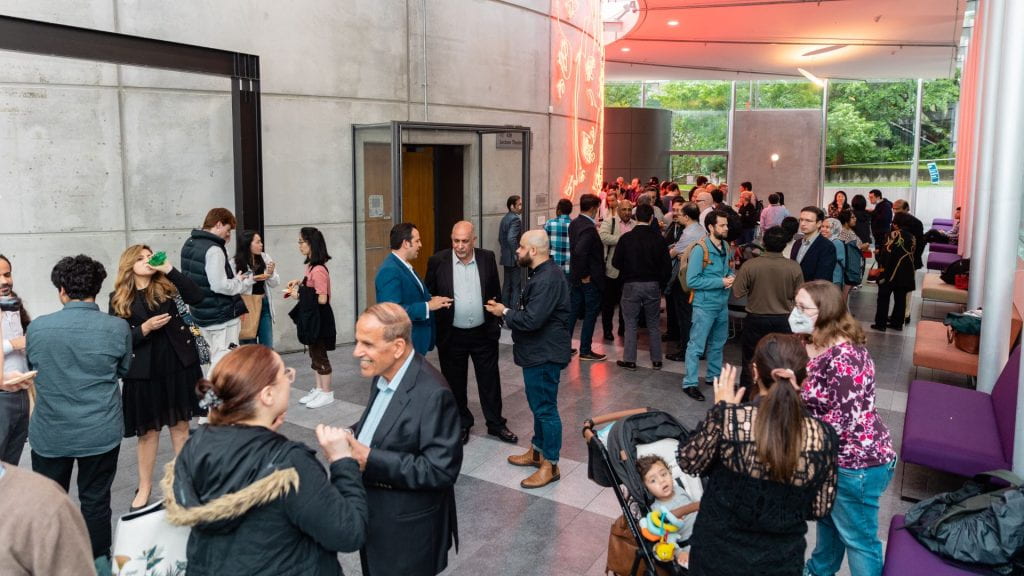
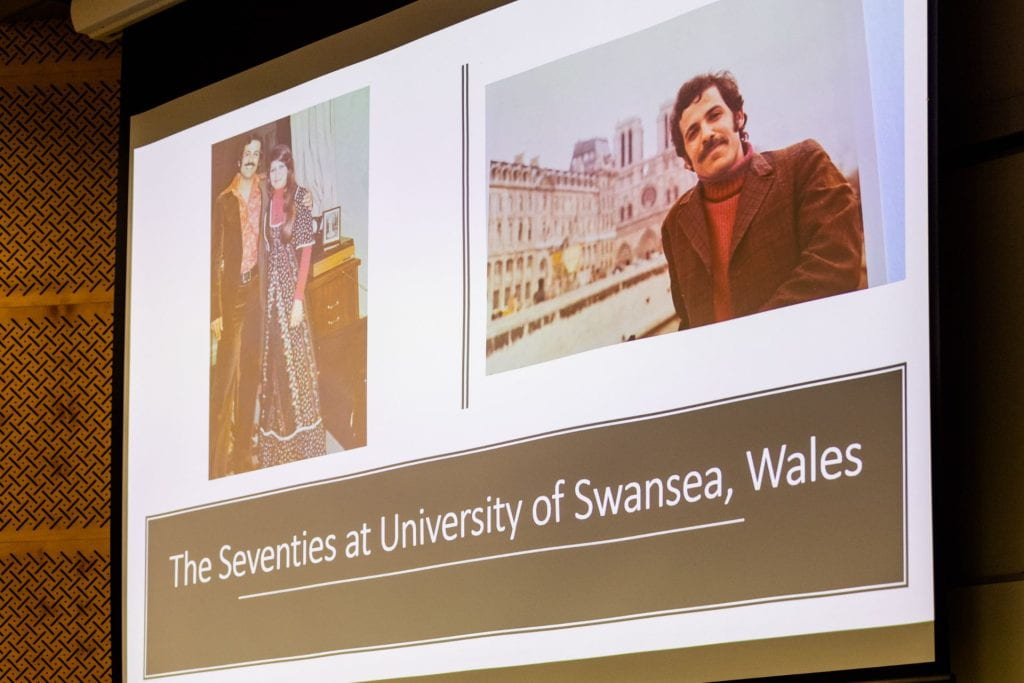
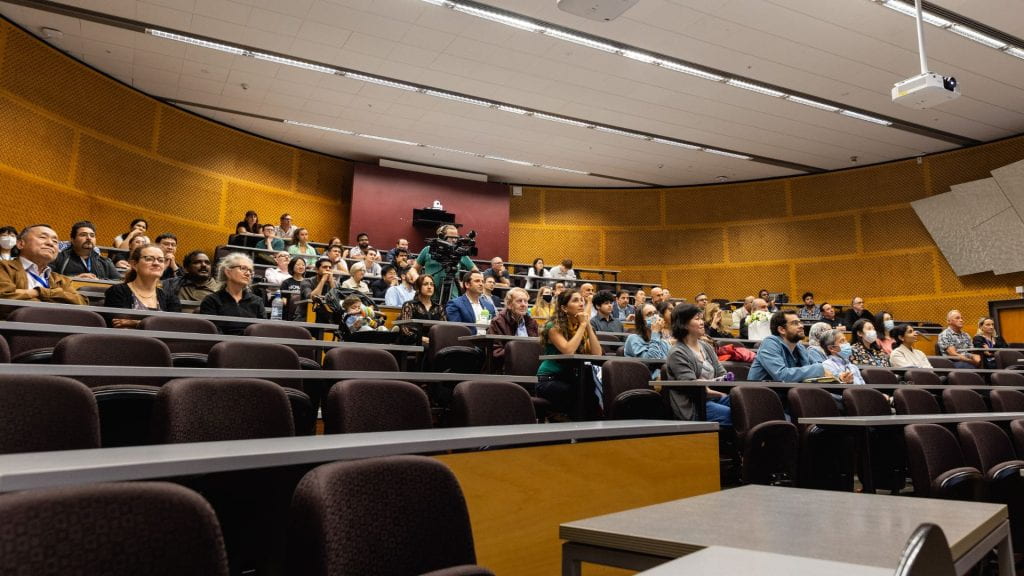
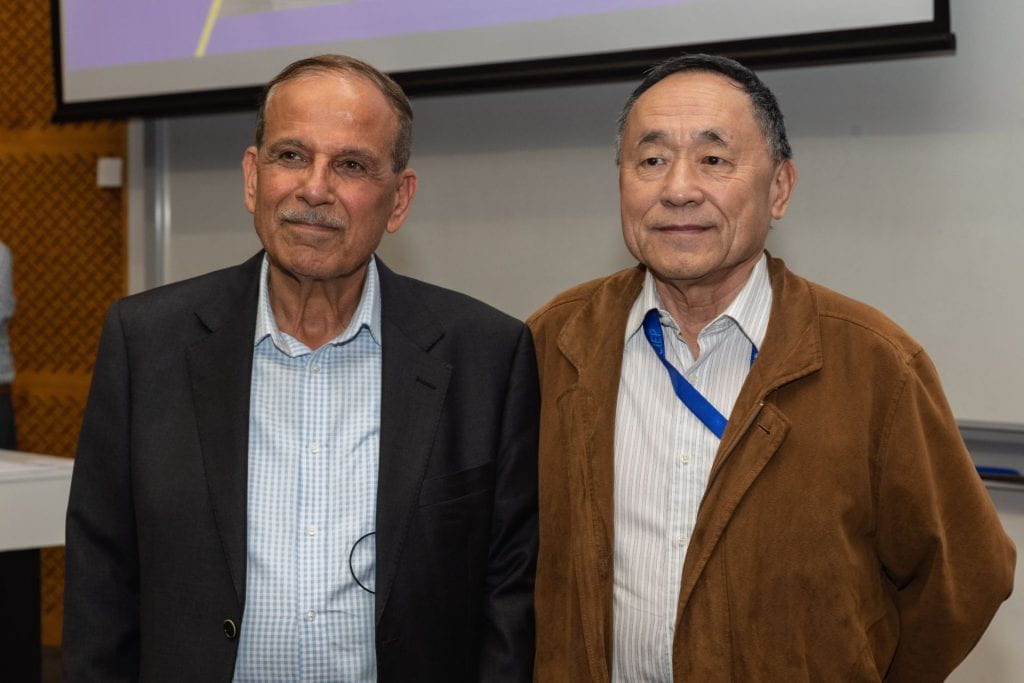
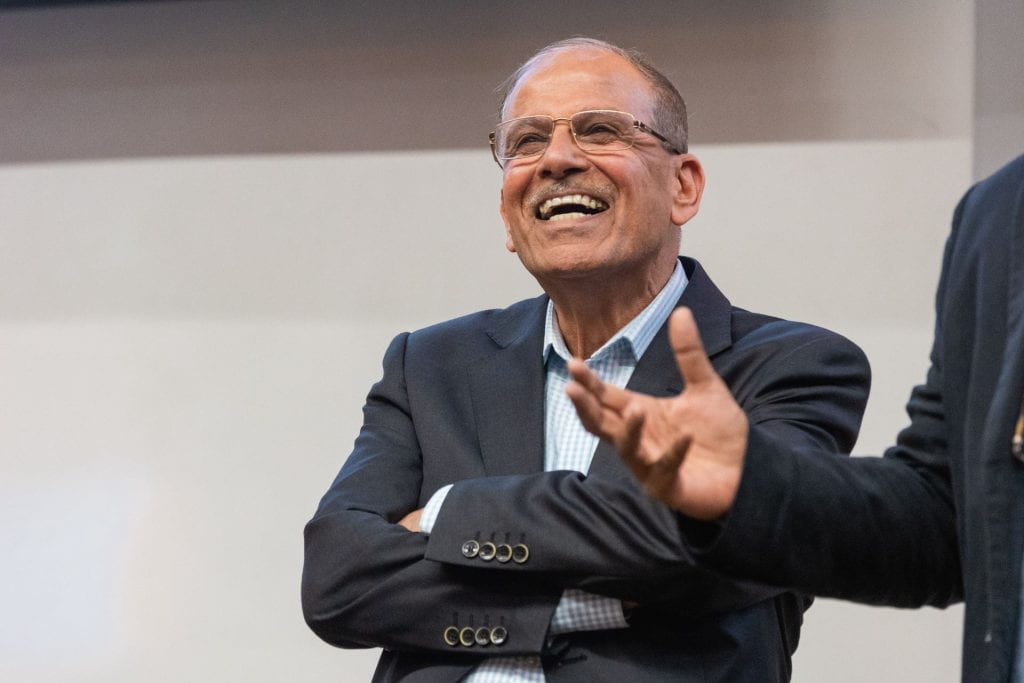
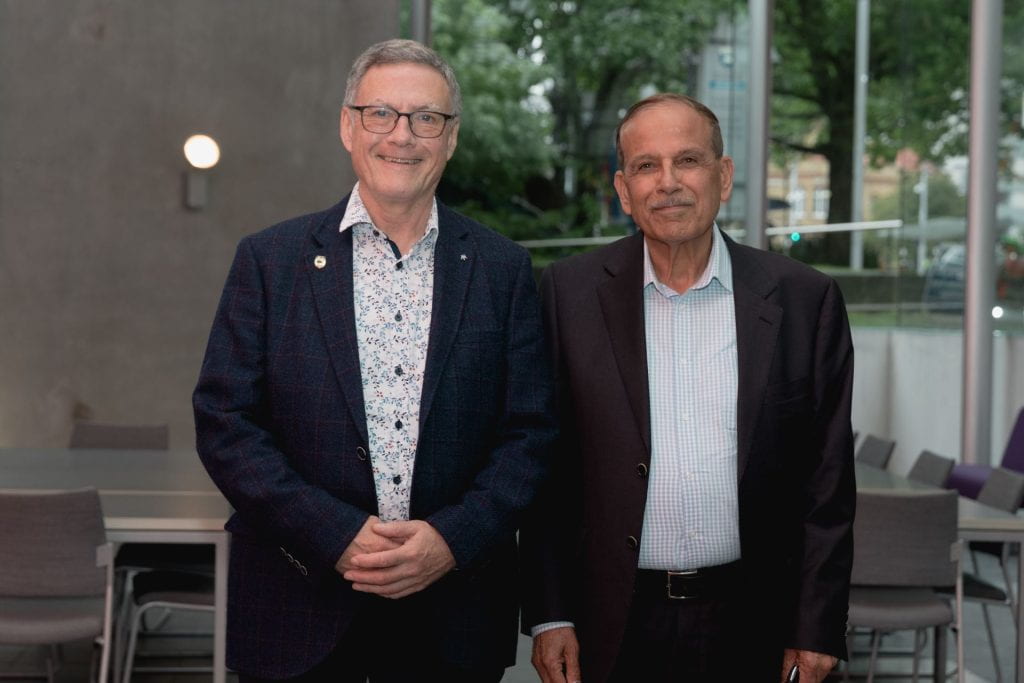
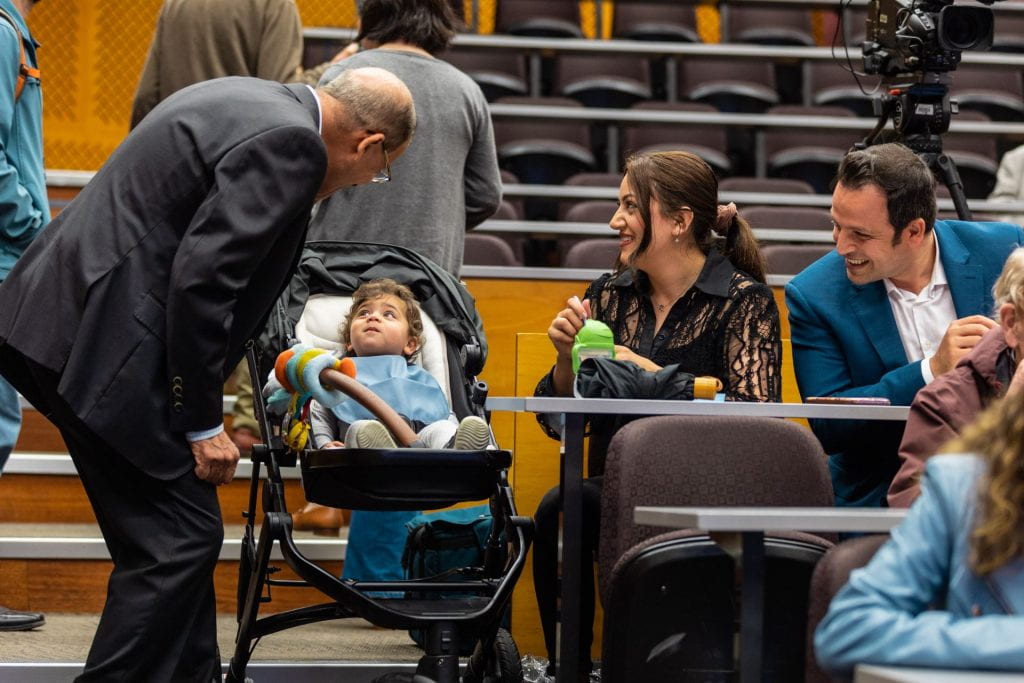
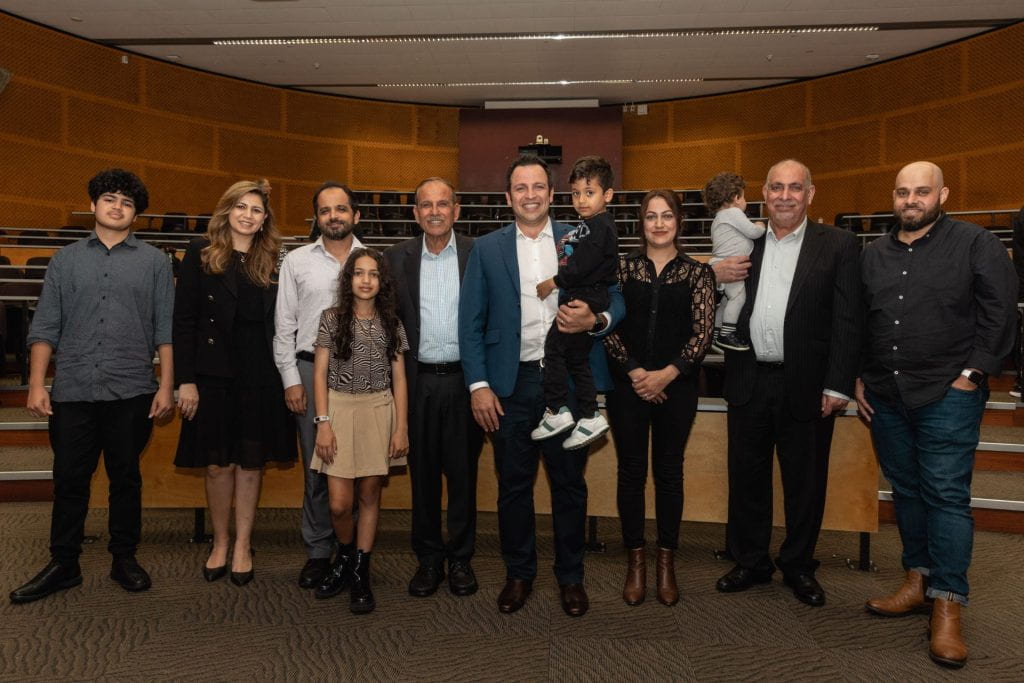

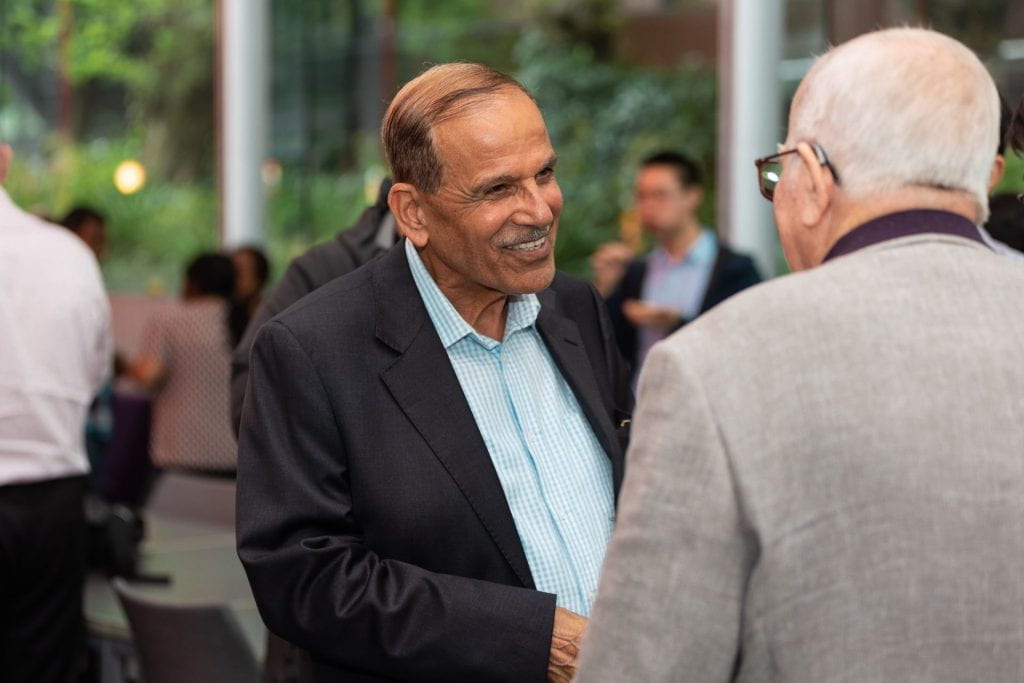
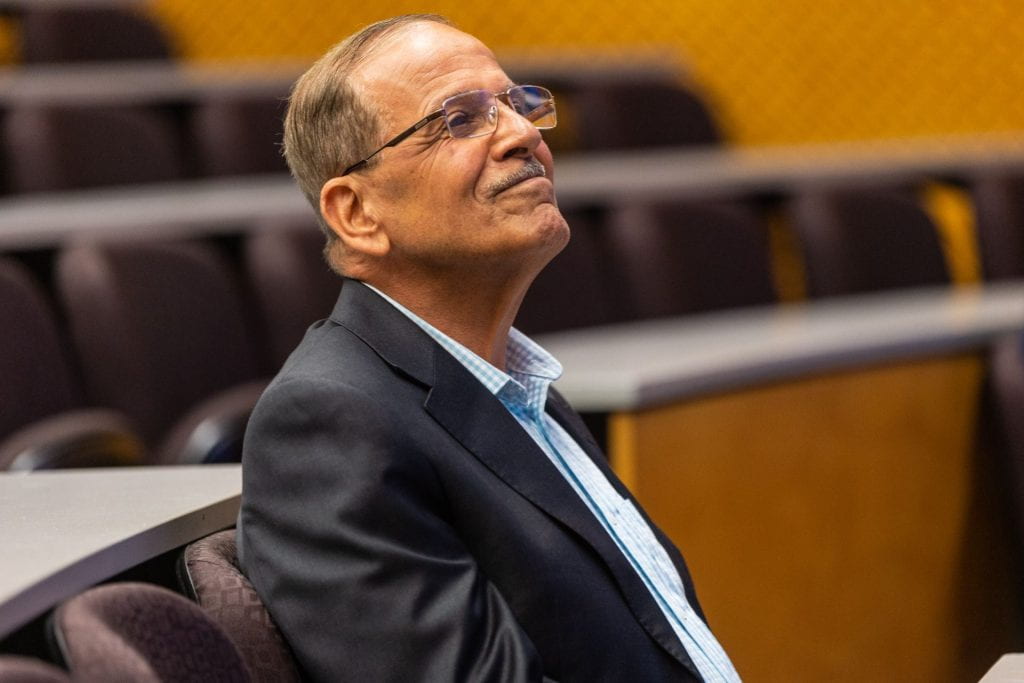
Staff Awards – 2022
On 9th Dec 2022, the Faculty held its annual end-of-year celebration. The celebration brings all staff together with food and drink as we round off the year and head towards the holiday season.
The celebration is also an opportunity to hand out awards for exemplar performance, by both professional and academic staff.
This year the following received awards:
Professional Staff Excellence Awards (individual):
Kerryn Levy
Matthew Sidford
Ray Hoffmann
Faculty Teaching Awards – Best Teachers for 2022
Amar Auckaili
Steve Matthews
Saeid Baroutian
Congratulations to these staff members for their outstanding work!
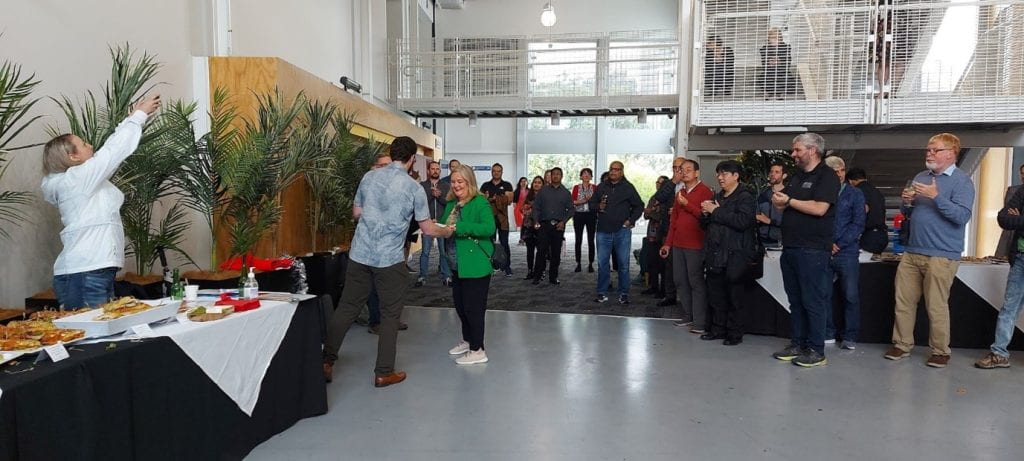
Kerryn Levy, receiving her award from the Director of Faculty Operations, Michael Willimott
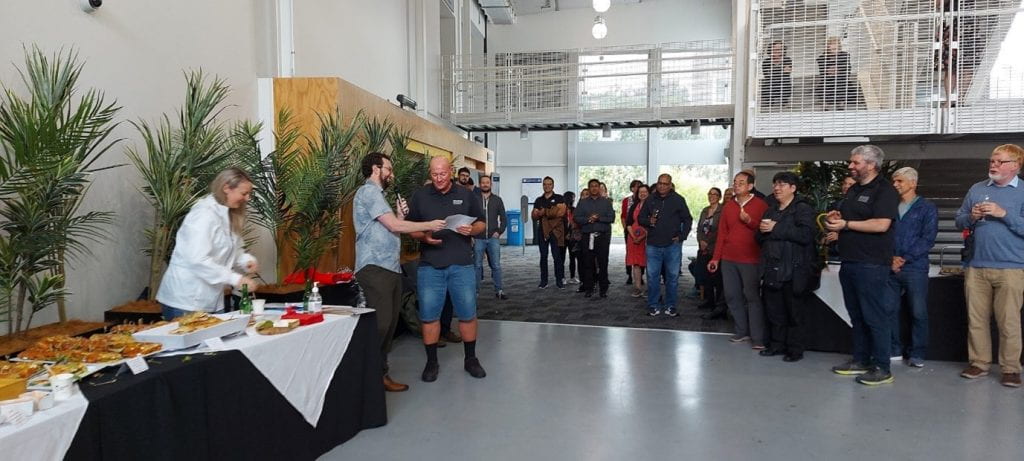
Matthew Sidford
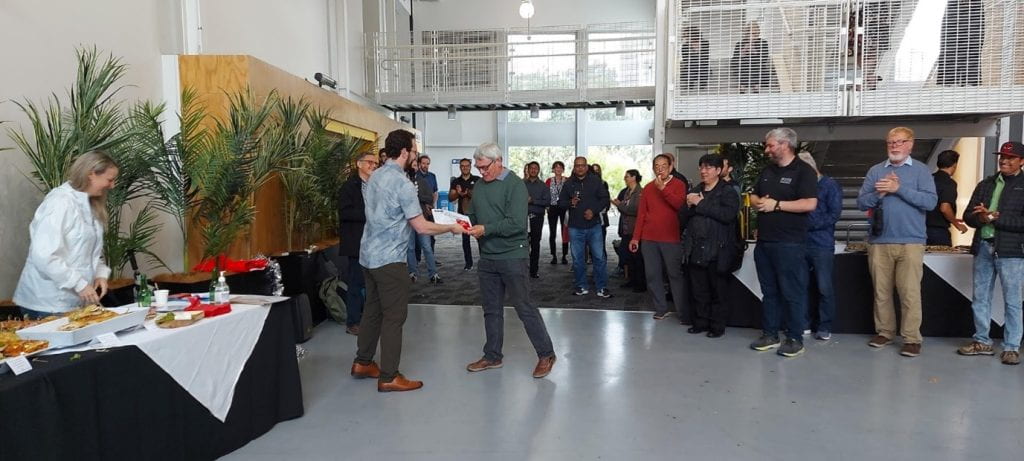
Ray Hoffmann
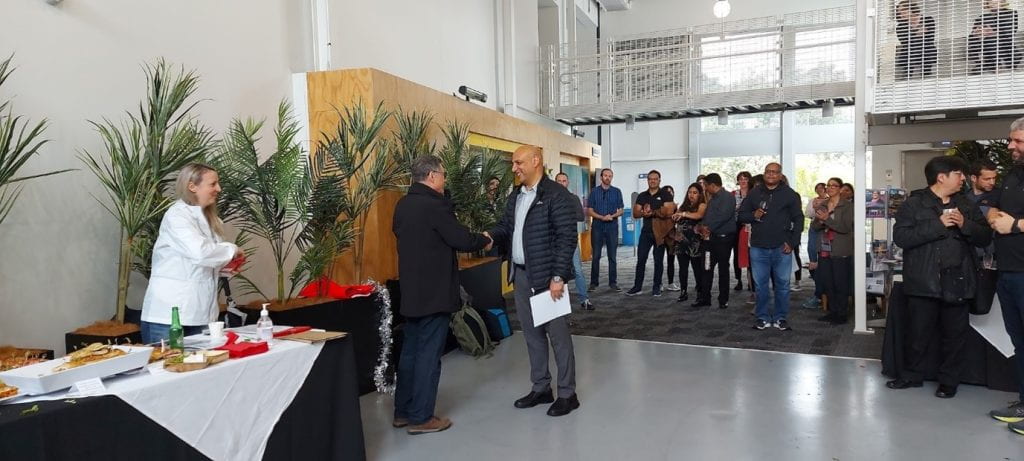
Amar Auckaili receiving his award from the Dean, Professor Gerard Rowe
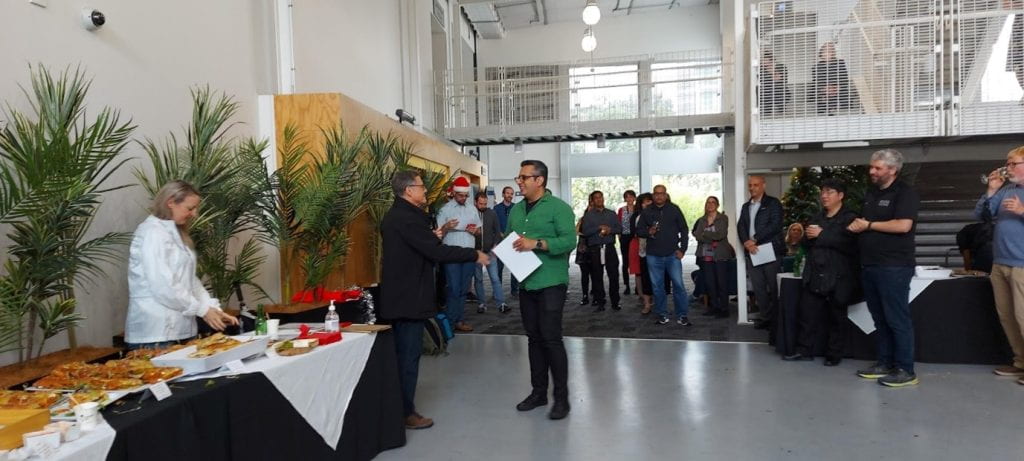
Saeid Baroutian
Dr Amar Auckaili
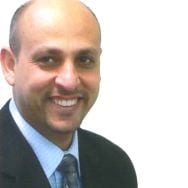
Photo: CHEMMAT’s Dr Amar Auckaili, Professional Teaching Fellow
Congratulations to CHEMMAT’s Dr Amar Auckaili for receiving a Special Achievement Award for “Collaborative peer review of teaching: A tool for teaching improvements in the context of COVID-19.”
Amar won a Teaching Development award for his work on the initiative: “Collaborative peer review of teaching: A tool for teaching improvements in the context of COVID-19.”
These awards are designed to foster innovation and experimentation in teaching, so these are “development” awards in the sense that they are developing new ideas and new initiatives, trying out new ways of doing things.
Amar has completed the requirements for the degree of Master of Higher Education (with first-class honours) and set an appointment for graduation in May 2022. In his thesis, Amar investigated the application of collaborative peer review of teaching (CPRT) as a tool for teaching improvements in the context of COVID-19.
In collaboration with a group of participating academics from the faculty of engineering, Amar produced descriptive data of a collective case study through a process of three phases: 1) pre-observation meeting, 2) observation and 3) post-observation meeting. The qualitative data was the self-perceptions of the participants, observation records and feedback generated at the three steps. Peer feedback reported that CPRT had helped to establish a culture of collegiality around teaching approaches, encouraging reflective teaching practice, and providing specific recommendations for improvements. The immense applicability of CPRT helped the participants to assess the quality of online teaching and improve their teaching practices. According to Amar’s thesis, CPRT has a unique set of features, such as relatively open-ended, flexible, non-judgmental, non-managerial and non-bureaucratic within which the obligation of continuing teaching improvements could be effectively met.
The participants perceived the benefits of the implemented CPRT at two levels. Firstly, at an individual level where these benefits included the development of self-reflection practices and a culture of staff collaboration. Secondly, at an institutional level where these benefits included improving student learning outcomes, focusing on teaching quality, and showing the participants’ commitment to the strategic directions taken by the University.
The outcome of Amar’s work could benefit educators and curriculum developers who aim to present quality online and blended forms of learning and teaching through shared knowledge and best practices, and reflection. The CPRT process, method, forms, and templates that Amar used could be used more widely at the University of Auckland because this work was research-based in the faculty of education and social work/school of critical studies in education.
Completion of this research would not have been possible without the generous support Amar has received from a group of his colleagues, especially Dr Claire Donald.
Shortlisted for the VC’s Excellence Awards – Dr Alec Asadov

Photo: CHEMMAT’s Dr Alec Asadov, Senior Technician
Congratulations to Dr Alec Asadov for making it to the shortlist for the Vice-Chancellor’s Excellence Awards!
Alec’s excellence in enhancing the student/staff experience through his management and operation of the Heat Treatment, Magnetron Sputtering, X-ray Diffraction and Thermal Analysis labs research laboratories has been transformational. He has enhanced the University’s reputation nationally and internationally through development of novel analysis methods, commercial investigations, and high impact publications.
Top teachers announced
The faculty Teaching Awards from last year were announced earlier this year.
We would like to congratulate all the Top Teachers, particularly the following award recipients from CHEMMAT:
- Dr Amanda Di Ienno
- Dr Amar Auckaili
- Dr Saeid Baroutian
- Dr Shan Yi
New board appointment – Dr Laura Domigan
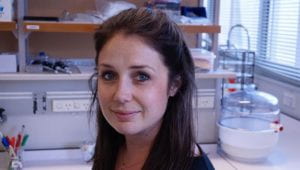
Photo: CHEMMAT’s Dr Laura Domigan, Senior Lecturer
Congratulations to Dr Laura Domigan on her appointment to the Ministry of Business, Employment and Innovation’s Science Board.
New Professional Teaching Fellow – Marc Lewis
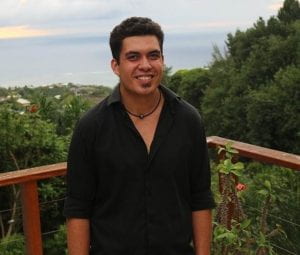
Photo: CHEMMAT’s new PTF, Marc Lewis
This year we welcomed new staff member Marc Lewis (CHEMMAT conjoint graduate 2019), who joined the department as a Professional Teaching Fellow.
Marc teaches across the Engineering General papers (ENGGEN 204, 303, 403) leveraging his knowledge of Engineering, Entrepreneurship and Business gained from both formal education and industry start up experience.
Marc is also a PhD candidate researching Medicinal Cannabis product development, to add to the growing body of evidence on the efficacy of Medicinal Cannabis pharmaceuticals.
Read Marc’s thoughts on his first few months in the role:
“I’ve really enjoyed my first few months in the Professional Teaching Fellow role, graduating in 2019, it’s been eye opening seeing the other side of a University course.
The organisation and work that goes on behind the scenes cannot be overstated.
The EngGen courses suit me well with my background in building business cases and aspirations towards a career of Entrepreneurship and Governance. Critical Thinking, Team Collaboration and Communication, Business Case Formation, Societal Impact and Systems Thinking are all instrumental to be successful in society today. I feel very privileged to be able to teach these important topics to our future engineers.
Running tutorials and lecturing in OGGB 098 for the Part IV’s are highlights of my journey so far, and have improved my speaking confidence 100-fold.
The unique perspective and leadership skills I have gained in this short time teaching have been truly valuable, and are skills I will continue to develop and use as I move through my career.
Whāia te iti kahurangi ki te tūohu koe me he maunga teitei
Seek the treasure that you value most dearly, if you bow your head, let it be to a lofty mountain
Aim high, be persistent and don’t let any obstacles stop you!”
Department Equity Committee
Within the Department, we have an Equity Committee that meets every two months.
Members of the Committee are: Dr Filicia Wicaksana (Chair), Dr Jenny Malmström, Dr Amar Auckaili, Dr Shan Yi, Laura Liang, Kerryn Levy. Recently, we’ve had a few people leave the Department, and we are currently looking at recruiting a few new Members.
One of the issues the Committee looks at addressing is gender equity. Following are a couple of Women in Engineering profiles from our archives, which we hope will inspire any women who are contemplating Engineering as a profession:
Dr Jenny Malmström

Dr Jenny Malmström is an Associate Professor in CHEMMAT. Her research focusses on creating functional biointerfaces to understand and control biological systems. She never expected to become an academic and did not know what a PhD was growing up. In fact, she used to want to become a rubbish truck driver. She and her sister were the first in the family to attend university, so she had the pleasure of growing up with low expectations, but a great deal of support. Her passion for experimental science started early. The first exposure to a “real” laboratory was at the end of high school when she called up a professor at Stockholm University and asked to spend a week in their lab as an intern. There, she was introduced to growing nitrogen fixating bacteria and learned what a PhD student is.
When she started to study Bioengineering at Chalmers in Gothenburg, Sweden in 1998, it was the first time she experienced that learning was hard. After overcoming the significant struggle of the first year, she took a year off to work and travel before returning to university. She graduated with an MSc of bioengineering in 2004 after traveling to New Zealand to perform her final research project. That project gave her a taste for independent research, leading into a one-year postgraduate research programme. During that programme, Jenny worked in three different research groups and got a good insight in what research she enjoyed and the importance of a good supervisor. One of the projects during that postgraduate year was with Dr. Duncan Sutherland, who subsequently secured a position at the University of Aarhus in Denmark and offered her a PhD position, which she took up.
After her PhD, she decided to go to Auckland in New Zealand for a postdoctoral research position in polymer chemistry. To do this, she applied for all postdoctoral funding she was eligible for. While all of her applications were unsuccessful, her determination secured her a locally funded postdoc. Moving to a new field after her PhD was both rewarding and challenging. It was a very valuable way to expand research skills. In 2016, Jenny was successful in securing a permanent academic position at the Department of Chemical and Materials Engineering. That year, she was also awarded two major early career research grants. Taken together, this was a significant event in her career, providing the security, funds, and research time needed to start her research group. She is currently supervising a talented group of PhD students and honours students. The research in the group is all about interfaces: The interfaces where biological molecules meet novel materials and the interfaces between biology, chemistry, and materials science. The group’s expertise in characterising and understanding the material-biomolecule interactions is applied to emerging and exciting areas such as the creation of smart materials to help understand or control cellular behaviour.
During Jenny’s meandering path, a few pieces of advice have stood out as central:
- It is important to find a PhD topic you are passionate about, but it is possibly even more important to choose your PhD supervisor with care. My PhD supervisor, Prof Duncan Sutherland, was central in my career as he made me believe in my ability and shared his inspiration for the biointerface field with his students.
- Persistence and patience is key in research and in particular, when it comes to applying for grants and positions. Listen carefully to feedback and advice to improve, but do not stop applying!
- Some of the best advice I have had, from a female researcher, is that there is never a good time to have kids—so there is little point waiting for the perfect time. I never wanted to choose between having kids or a career, and had my first child during my PhD and my second during my first postdoctoral position. For the young women out there who want both a family and a career, it is possible and a supportive partner makes all the difference!
Dr Isabela Monteiro
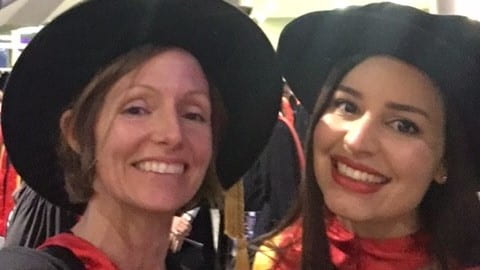
From the left: Dr Jenny Malmström, Dr Isabela Monteiro
Dr Isabela Monteiro commenced her doctoral studies at University of Auckland in November 2016, combining synthetic materials with biological molecules to better understand stem cell behaviour. She has a Bachelor of Science and Technology with specialisation in Biomedical Engineering from the Federal University of Sao Paulo, Brazil.
After one and a half year of internships at large multinational companies, Isabela realised that her major interest was to follow an academic career in science. In her PhD research conducted with Dr Jenny Malmström, Isabela applies advanced materials characterisation techniques to investigate cell responses to micro and nanoengineered surfaces.
New website: WUN Global Research Group, Asia
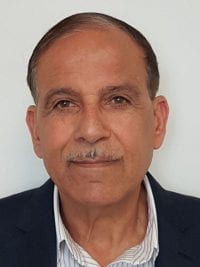
Photo: CHEMMAT’s Professor Mohammed Farid
CHEMMAT’s Professor Mohammed Farid was invited to be Co-Chair of the WUN Global Research Group.
Read their news, updates and information about all their research projects. Congratulations Mohammed!
Velocity Innovation Challenge
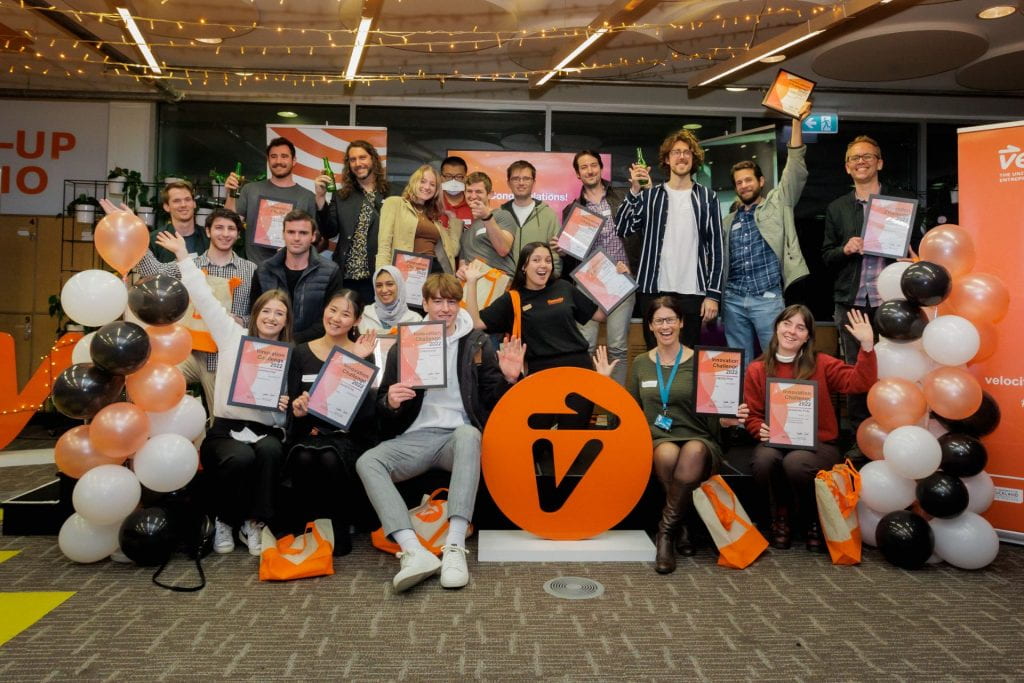
Congratulations to all the winners of this year’s Velocity Innovation Challenge!
In particular, we would like to acknowledge the following winners:
Food Alchemists
Team: CHEMMAT’s Dr Wai Woo, Dr Pablo German
UNSDG Goal 12: Responsible Consumption and Production
Elevator pitch – “Manuka honey is known for its beneficial properties. However, people practising a vegan diet are not able to consume it as honey is an animal product made by bees. Food Alchemists will produce a Vegan Manuka Honey without bees which is nutritionally equivalent to Manuka honey.”
Solar Cathodic protection for metallic materials
Team: CHEMMAT’s PhD student Jack Robertson (Supervisor: Saeid Baroutian)
UNSDG Goal 9: Industry, Innovation and Infrastructure
Elevator pitch – “This project will use solar produced energy to cathodically protect metallic material in industrial constructions (such as buildings) to enhance equipment lifetime. Batteries and/or capacitors will be used to regulate flow of electricity keeping it constantly running when sunlight is not available.”
EchoRadar
Team: Dr Cody Mankelow, Professional Teaching Fellow, Environmental & Civil Engineering
UNSDG Goal 14: Life Below Water Elevator pitch – “Our innovation, the EchoRadar, locates and monitors the critically endangered Maui dolphins. This information is then delivered to nearby commercial and charter fishers, who are prompted to adjust their actions accordingly to reduce the bycatch of Maui dolphins. Thus, the EchoRadar fosters more sustainable fishing practices.”
Related to ENGGEN 303
Visit to the University of Waikato | Te Whare Wānanga o Waikato
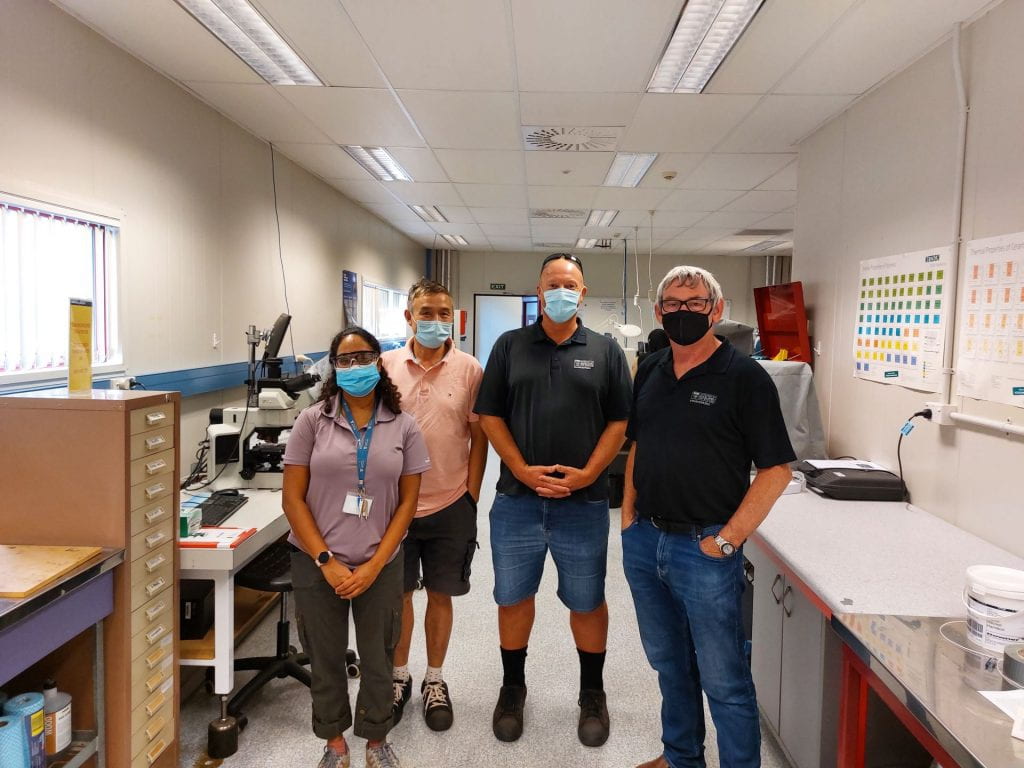
Photo from left – Dr Sophia Rodrigues (University of Waikato | Te Whare Wānanga o Waikato), CHEMMAT staff: Technician Frank Wu, Technical Manager Dr Matthew Sidford, Senior Technician Ray Hoffmann
With the arrival of a new kneader/mixer into the Chemical and Materials laboratory in Newmarket, the supporting Technical staff were fortunate enough to be invited to visit the Engineering Department at the University of Waikato (Te Whare Wānanga o Waikato) Tawhanga Morahi (Large Scale Laboratory) to grab an insight on how their equipment was set up.
While down there, we were treated to a tour of the Engineering laboratories by a former Chemical and Materials colleague Dr Sophia Rodrigues to soak up the vibe in Waikato supported by their slogan “E2 Experience Engineering.”
Just like to thank Professor Peng Cao and CHEMMAT PhD student Keemi Lim for organising the visit and to Jonathan van Harselaar and Dr Sophia Rodrigues for their time.
– Dr Matthew Sidford
